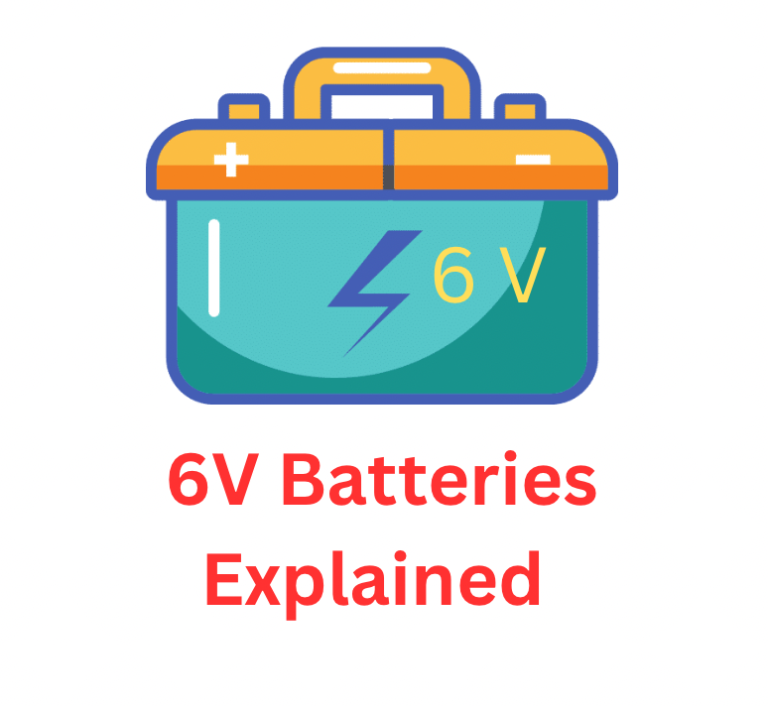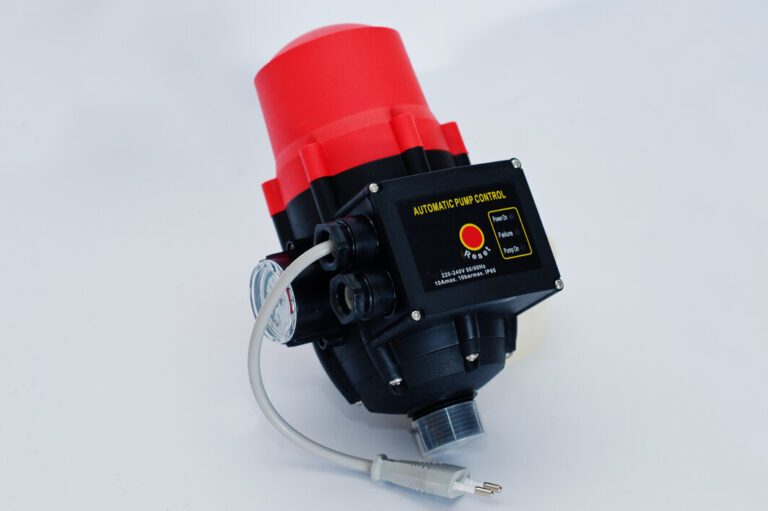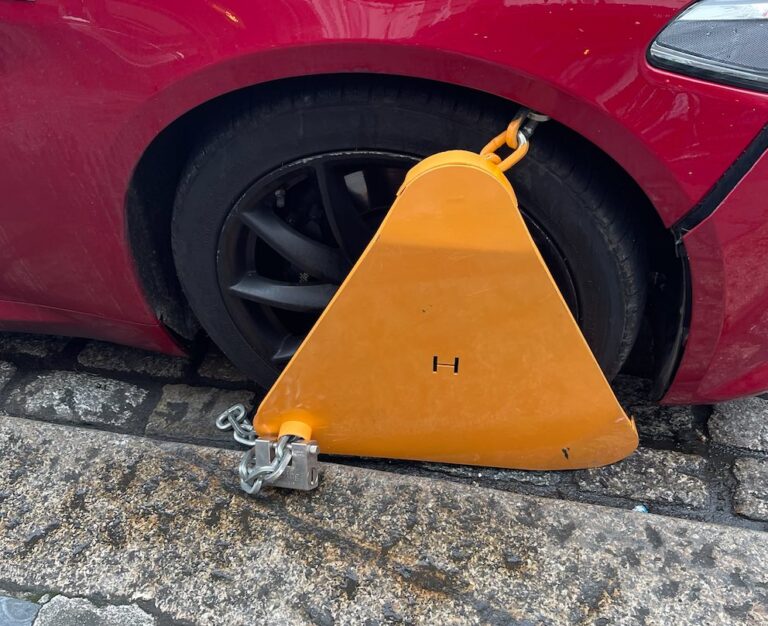Exploring Caravan Toilet Cassettes: Your Ultimate Guide
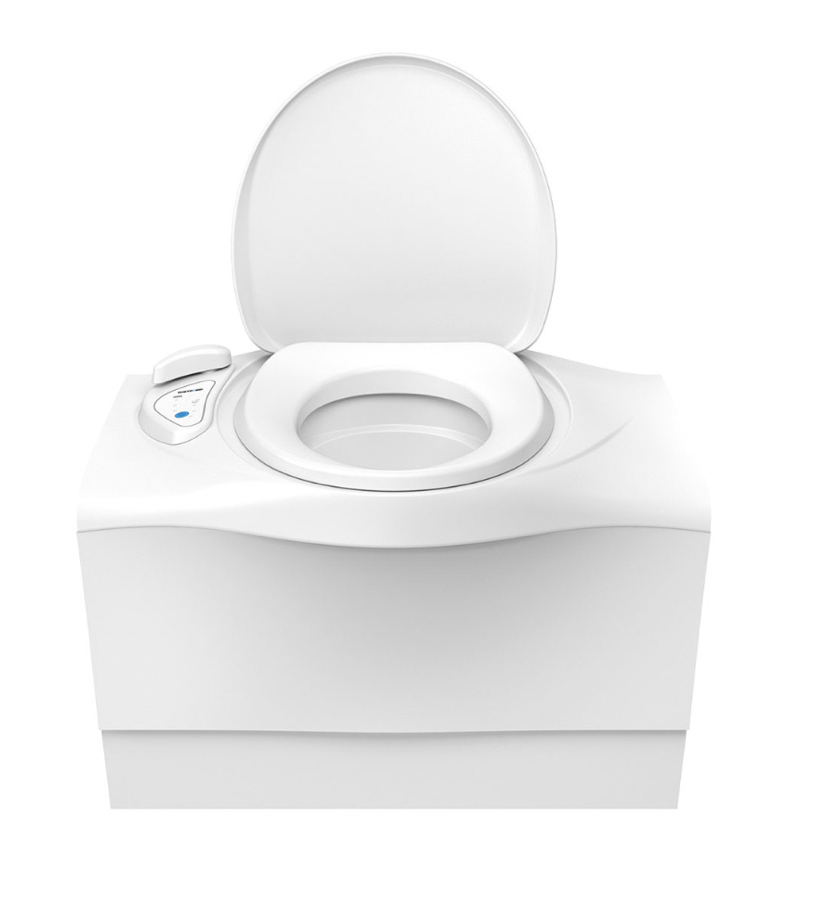
Caravan Toilet Cassettes Basics
In the world of caravans and motorhomes, one vital aspect that demands attention is the toilet system. Many of these vehicles come equipped with a Thetford toilet, particularly the popular cassette toilets designed for caravans. These toilets typically comprise two main parts: the permanent toilet fixture and the waste holding tank.
Models like the Thetford c200 , c260 and c400 cassette toilets are commonly found in numerous campervans. They feature a handy level indicator to signal when it’s time to empty the waste tank. Accessing the tank for emptying is usually done through a service door located on the exterior of the vehicle.
For those seeking a more portable option, the porta potti stands out as a favoured choice. This portable toilet includes a water tank and a separate waste holding tank for convenient disposal. Additionally, larger caravans often feature models like the Thetford c4 cassette toilet, along with the reliable Thetford c220 and c3 models.
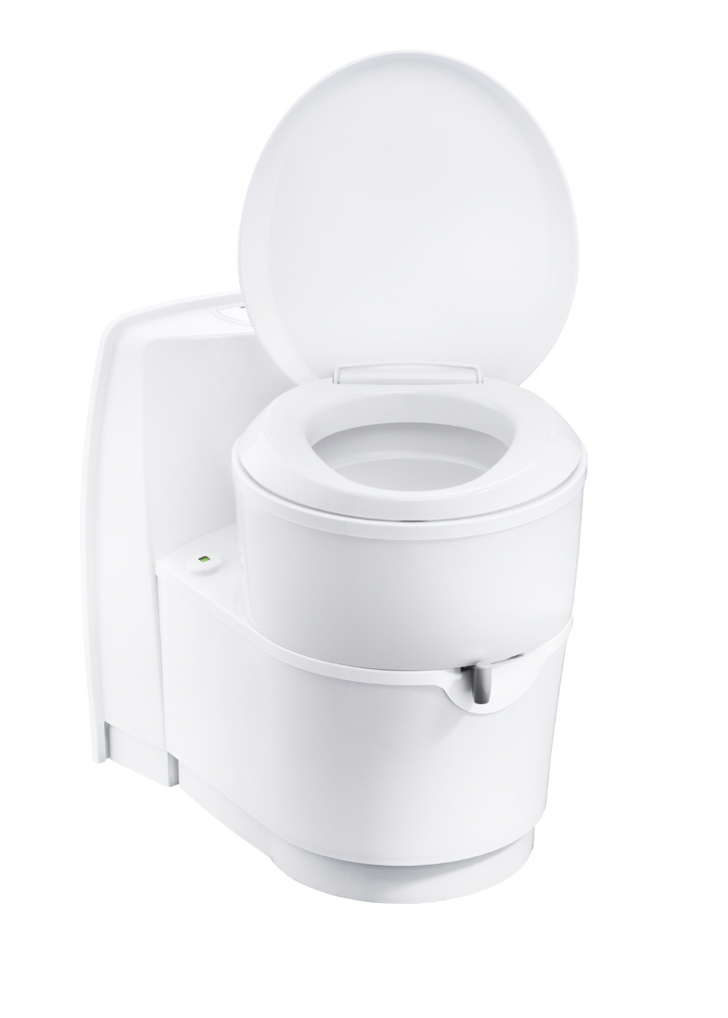
Caravan toilets serve as essential components of any mobile living or camping experience, offering a practical and hygienic solution for human waste disposal. Unlike traditional flush toilets found in homes, caravan toilets are designed to be compact, lightweight, and easily portable to cater to the unique needs of travelers on the move.
Tank Material and Capacity
Caravan toilet cassettes typically feature tanks made from durable, lightweight materials such as high-density polyethylene (HDPE) or ABS plastic. These materials are chosen for their resistance to corrosion, odors, and cracks, ensuring long-term reliability.
The tank capacity of a caravan toilet cassette varies depending on the model and brand but generally ranges from 10 to 20 litres. Larger tanks allow for extended use without needing frequent emptying, making them ideal for families or longer trips where access to disposal facilities may be limited.
Sealing Mechanism
One of the key components of a caravan toilet cassette is its sealing mechanism, which ensures that waste is securely contained during transport and storage. Most modern cassettes feature a robust sealing system that prevents leaks and odors from escaping.
This mechanism typically consists of airtight seals or valves that engage when the cassette is removed from its housing unit, creating a watertight barrier between the waste chamber and the outside environment. A reliable sealing mechanism is crucial for maintaining cleanliness and preventing any unwanted spills or contamination inside the caravan.
Disposal Outlet
The disposal outlet is where waste is emptied from the caravan toilet cassette when it reaches full capacity. This outlet is strategically located on the bottom or side of the cassette for easy access during emptying procedures. Some cassettes feature built-in spouts or pour-out spigots that allow for direct disposal into designated dumping stations or toilet facilities.
Additionally, modern designs may incorporate quick-release mechanisms or sliding doors to facilitate hassle-free emptying without requiring complex disassembly steps. Proper maintenance of the disposal outlet is vital to prevent blockages and ensure efficient waste removal without any mess or spillage in the surroundings.
Types of Caravan Toilet Cassettes
Portable Cassette Toilets: Embrace Mobility
Portable cassette toilets are a versatile option for those who seek convenience and flexibility in their caravan adventures. These compact units are lightweight, making them easy to transport and install wherever your journey takes you. Designed with portability in mind, portable cassette toilets are ideal for camping trips, outdoor activities, and short excursions where space is a premium.
The user-friendly nature of these toilets allows for quick set-up and hassle-free maintenance, making them a popular choice among nomadic travellers. One of the key features of portable cassette toilets is their compact size, which makes them suitable for smaller vehicles or limited caravan spaces.
Despite their size, these toilets offer impressive functionality with efficient waste management systems and odor control mechanisms. With easy-to-empty waste tanks and simple cleaning procedures, portable cassette toilets provide a convenient sanitation solution for on-the-go adventurers who value mobility without compromising on comfort or hygiene during their outdoor escapades.
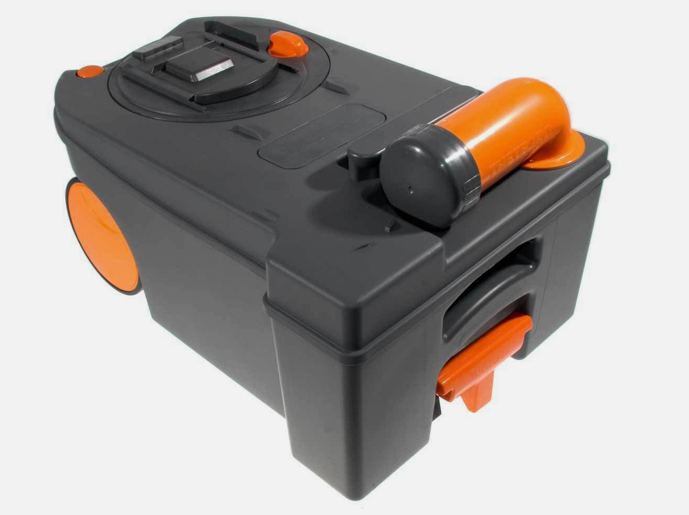
Built-In Cassette Toilets: Built to Last
Built-in cassette toilets are a more permanent fixture within caravans, offering a robust sanitation solution for long-term caravanning trips. These integrated units require professional installation to ensure proper fitting and functionality within the vehicle’s layout. Built-in cassette toilets offer larger waste tank capacities compared to portable options, making them suitable for extended travel durations without the need for frequent emptying or maintenance.
The installation process involves careful consideration of plumbing connections, ventilation requirements, and space allocation within the caravan. For travelers embarking on extended journeys or living full-time in their caravans, built-in cassette toilets provide added convenience and comfort without the hassle of external toilet facilities.
The durability of these units ensures reliable performance throughout various terrains and weather conditions encountered on the road. With customizable design options to blend seamlessly with the interior aesthetics of different caravan models, built-in cassette toilets cater to individuals seeking a long-lasting sanitary solution that enhances their overall travel experience with practicality and style.
Innovative Features in Modern Caravan Toilet Cassettes
Sensor Technology for Waste Level Monitoring
In the realm of modern caravan toilet cassettes, sensor technology has revolutionised the way users monitor waste levels. Gone are the days of guessing when it’s time to empty the cassette or risking overflows.
With sophisticated sensors integrated into the system, caravan owners can now receive real-time data on the waste level within their cassette. These sensors utilise ultrasonic or pressure-based mechanisms to accurately measure the fill level, providing users with timely alerts or readings through digital displays or smartphone apps.
Such advancements not only enhance convenience but also contribute to better waste management practices by ensuring timely disposal and preventing potential mishaps. Moreover, sensor technology goes beyond just monitoring waste levels; some advanced systems can even analyse waste composition and provide insights into tank hygiene and maintenance requirements.
By tracking usage patterns and detecting any anomalies in waste characteristics, these smart sensors empower caravan owners to optimise their cleaning routines and use appropriate chemicals for effective sanitation. The integration of sensor technology not only simplifies the task of managing a caravan toilet cassette but also promotes sustainability by encouraging responsible waste disposal practices based on data-driven insights.
Self-Cleaning Mechanisms
Imagine a caravan toilet cassette that cleans itself – a futuristic concept that is now a reality thanks to innovative self-cleaning mechanisms incorporated into modern designs. These cutting-edge systems are engineered to automate the cleaning process within the cassette, reducing manual labor and ensuring optimal hygiene standards with minimal effort.
Self-cleaning features typically involve automated rinsing cycles that utilise water jets or disinfectant solutions to thoroughly clean the interior surfaces of the tank, including hard-to-reach areas that are prone to bacterial growth. Furthermore, some advanced models come equipped with self-deodorising functions that neutralise odors and maintain a fresh environment inside the cassette.
By combining cleansing actions with odor control measures, these self-cleaning mechanisms elevate user comfort and convenience while upholding sanitary conditions within the caravan toilet system. The integration of such innovative features not only streamlines maintenance tasks but also enhances overall user experience by promoting cleanliness and hygiene on-the-go.
Unveiling Unique Designs in Luxury Caravan Models
Luxury caravan manufacturers have embraced innovative design concepts to elevate the comfort and convenience of onboard facilities, including toilet cassettes. In high-end caravan models, you can find bespoke toilet cassette compartments integrated seamlessly into the overall interior design.
These compartments are often equipped with smart storage solutions, odor control systems, and easy-access mechanisms for hassle-free maintenance. Moreover, luxury caravan brands have pushed boundaries by incorporating cutting-edge materials and technologies into their toilet cassette designs.
From sleek stainless steel finishes to touch-less flushing systems and advanced waste management features, these unique elements enhance both functionality and aesthetics. For discerning traveler seeking a luxurious camping experience, these exclusive toilet cassette designs offer a glimpse into the future of onboard sanitation solutions within the world of caravanning.
Future Trends in Caravan Toilet Cassette Technology
As technology continues to advance in all aspects of our lives, the realm of caravan toilet cassettes is not exempt from innovation. Future trends in caravan toilet cassette technology may include enhanced sensor systems for more accurate waste level monitoring, self-cleaning mechanisms to streamline maintenance processes, and eco-friendly designs that prioritise sustainability. Manufacturers are likely to focus on developing products that are more user-friendly, efficient, and environmentally conscious.
By staying attuned to these advancements and embracing new technologies in caravan toilet cassettes, traveler’s can look forward to even more convenience and comfort on their journeys. While maintaining a caravan toilet cassette may not be the most glamorous aspect of travel life, it is undoubtedly essential for a pleasant adventure on the road.
By adhering to proper maintenance practices and staying informed about evolving technologies in this field, caravan enthusiasts can ensure that their sanitation facilities remain efficient and sanitary throughout their trips. Embracing these responsibilities with diligence opens up a world of possibilities for improved travel experiences with modern conveniences at our disposal.
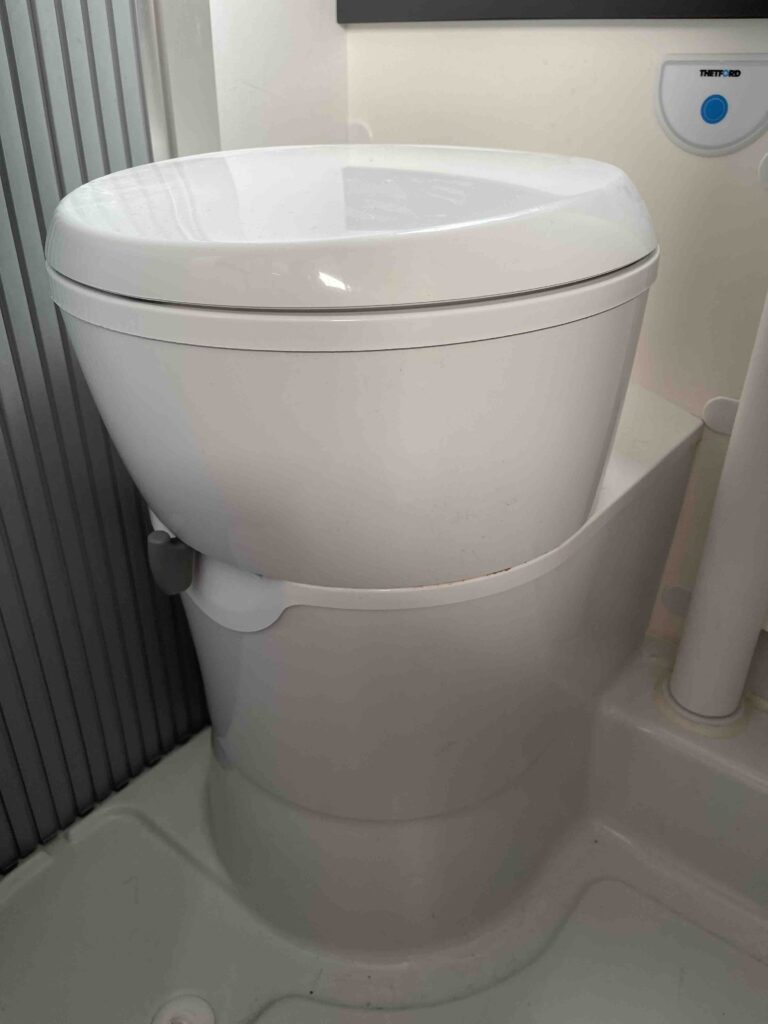
Factors to Consider When Selecting a Cassette Toilet
When selecting a cassette toilet, there are several factors to consider to ensure you make the best choice for your needs. Size is an important factor to consider, as you want to make sure the toilet fits comfortably in your available space. Capacity is another important consideration, as you want to make sure the cassette can hold enough waste for your usage. Ease of cleaning is also important, as you want a toilet that is easy to maintain and keep clean. Portability is another factor to consider, especially if you plan on using the toilet in multiple locations. By considering these factors, you can choose a cassette toilet that meets your needs and provides you with convenience and comfort.
Benefits of Electric Flush Systems
1. Water Efficiency: Electric flush systems use less water per flush compared to traditional flush systems, resulting in water savings and lower utility bills.
2. Ease of Installation: Electric flush systems are relatively easy to install, making them a convenient option for homeowners looking to upgrade their plumbing systems.
3. Improved Sanitation: Electric flush systems typically have adjustable flushing options, allowing users to control the amount of water used with each flush. This can lead to improved sanitation and a cleaner bathroom.
4. Hands-Free Operation: Many electric flush systems come with motion sensors or remote controls, allowing for hands-free operation. This can help prevent the spread of germs and bacteria in the bathroom.
5. Energy Savings: Some electric flush systems are designed to be energy-efficient, using less power to operate compared to traditional flush systems. This can lead to savings on electricity bills in the long run.
6. Customizable Flushing Options: Electric flush systems often come with customizable flushing options, such as dual-flush technology or adjustable water pressure. This can help users tailor their flushing experience to their preferences and needs.
7. Durability: Electric flush systems are typically built to last, with sturdy components that can withstand regular use. This can result in fewer repairs and maintenance costs over time.
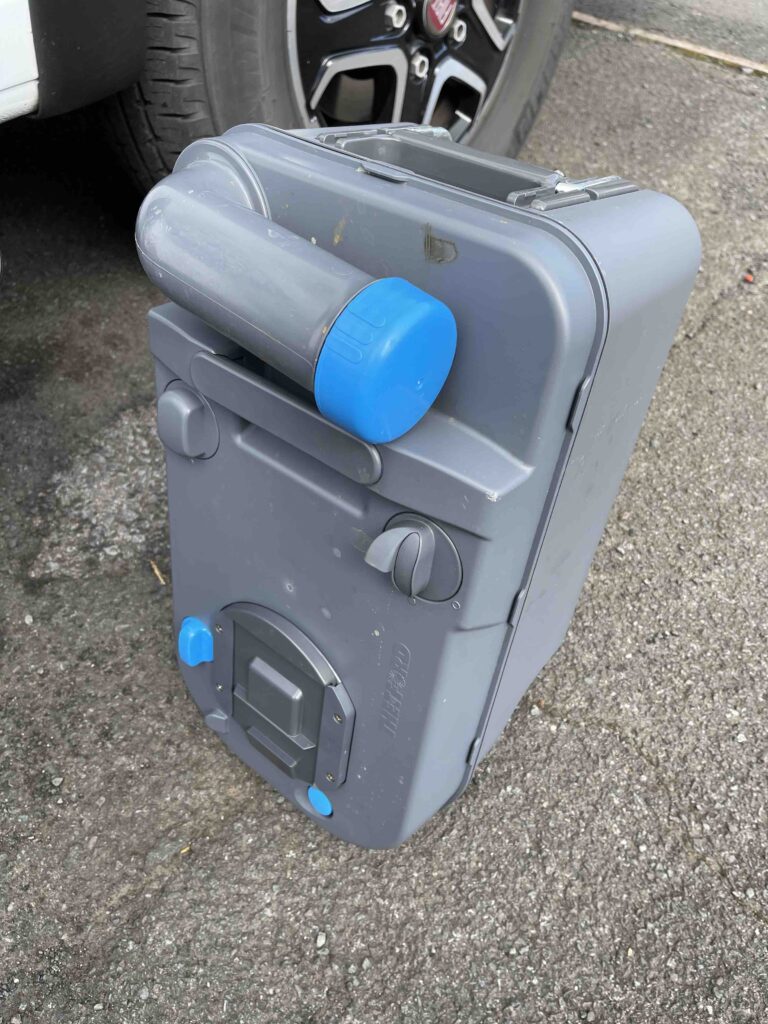
Maintenance Tips for Caravan Toilet Cassettes
Regular Cleaning: It is important to regularly clean the caravan toilet cassette to prevent odors and build-up. Use a specially formulated cleaner and follow the manufacturer’s instructions for best results.
Proper Disposal: When emptying the toilet cassette, make sure to dispose of the waste properly in designated areas. Avoid dumping waste in unauthorised locations to avoid environmental harm.
Inspect for Leaks: Regularly check the toilet cassette for any signs of leaks or damage. Repair any cracks or issues immediately to prevent further damage.
Store Properly: When not in use, store the toilet cassette in a cool, dry place to prevent mold and mildew growth. Proper storage will help prolong the life of the cassette.
Here are some TIPS for proper waste tank management:
Waste tank management is an important aspect of maintaining proper hygiene and sanitation in various settings, such as households, commercial buildings, and industrial facilities. Whether you have a septic tank or a holding tank for wastewater, proper management is essential to prevent environmental pollution, health risks, and costly repairs.
Regular inspections: Regularly inspect your waste tank to check for any signs of leaks, cracks, or other issues that may require immediate attention. This will help you identify problems early on and prevent them from escalating.
Pumping and cleaning: Schedule regular pumping and cleaning of your waste tank to remove accumulated sludge and prevent blockages. The frequency of pumping will depend on the size of your tank and the amount of waste generated.
Proper disposal: Make sure to dispose of waste from your tank properly by following local regulations and guidelines. Never dump hazardous chemicals, oils, or other toxic substances into your waste tank as they can cause serious environmental damage.
Avoid flushing non-biodegradable items: To prevent clogs and damage to your waste tank system, avoid flushing non-biodegradable items such as plastics, wipes, and feminine hygiene products down the toilet.
Maintain drainage: Ensure that your drainage system is properly maintained to prevent backups and overflows. Avoid planting trees or shrubs near your waste tank as their roots can penetrate and damage the tank.
Hire a professional: If you are not confident in managing your waste tank, consider hiring a professional service provider to inspect, pump, and maintain your tank. They have the expertise and equipment to ensure proper waste tank management.
By following these tips for proper waste tank management, you can help protect the environment, maintain a clean and healthy living or working environment, and extend the lifespan of your waste tank system. Remember that prevention is key when it comes to waste management, so be proactive in maintaining your tank to avoid costly repairs in the future. Using Toilet Chemicals Effectively
Ensuring Hygiene in the Toilet Bowl
The toilet bowl is one of the most important areas in a bathroom that needs to be kept clean to prevent the spread of germs and bacteria. Maintaining cleanliness in the toilet bowl not only ensures a fresh-smelling bathroom but also helps in preventing the spread of diseases. To ensure hygiene in the toilet bowl, it is important to regularly clean it with a disinfectant cleaner and scrub away any stains or grime. It is also important to regularly replace the toilet brush and keep it clean to prevent the growth of bacteria. Additionally, using a toilet bowl cleaner that kills germs and bacteria can help in maintaining the hygiene of the toilet bowl.
TIP: Holding Tanks Regular inspection of holding tanks is essential to ensure they are functioning properly and to avoid any potential issues or malfunctions. Here are some important steps to follow when conducting a regular inspection of holding tanks:
1. Check for any signs of leaks or cracks in the tanks. Inspect the entire tank, including the seams and joints, for any visible damage.
2. Check the tank levels regularly to ensure they are not overfilled. This can lead to overflow and spills, causing environmental hazards.
3. Inspect the vent pipes to ensure they are clear of debris and functioning properly. Blocked vent pipes can lead to back-flow and odors.
4. Check the tank fittings and connections for any signs of corrosion or wear. Replace any faulty fittings to prevent leaks.
5. Inspect the gaskets and seals on the tank lids to ensure they are in good condition and provide an airtight seal.
6. Check the alarm system, if applicable, to ensure it is in working order. This is important for detecting any issues with the tank levels.
7. Inspect the access points to the tanks to ensure they are secure and easily accessible for maintenance and pumping.
8. Keep a record of the inspections, including any repairs or maintenance performed, and schedule regular maintenance as needed.
By following these steps and conducting regular inspections of holding tanks, you can ensure they are functioning properly and avoid any potential issues that could cause environmental harm or safety hazards.
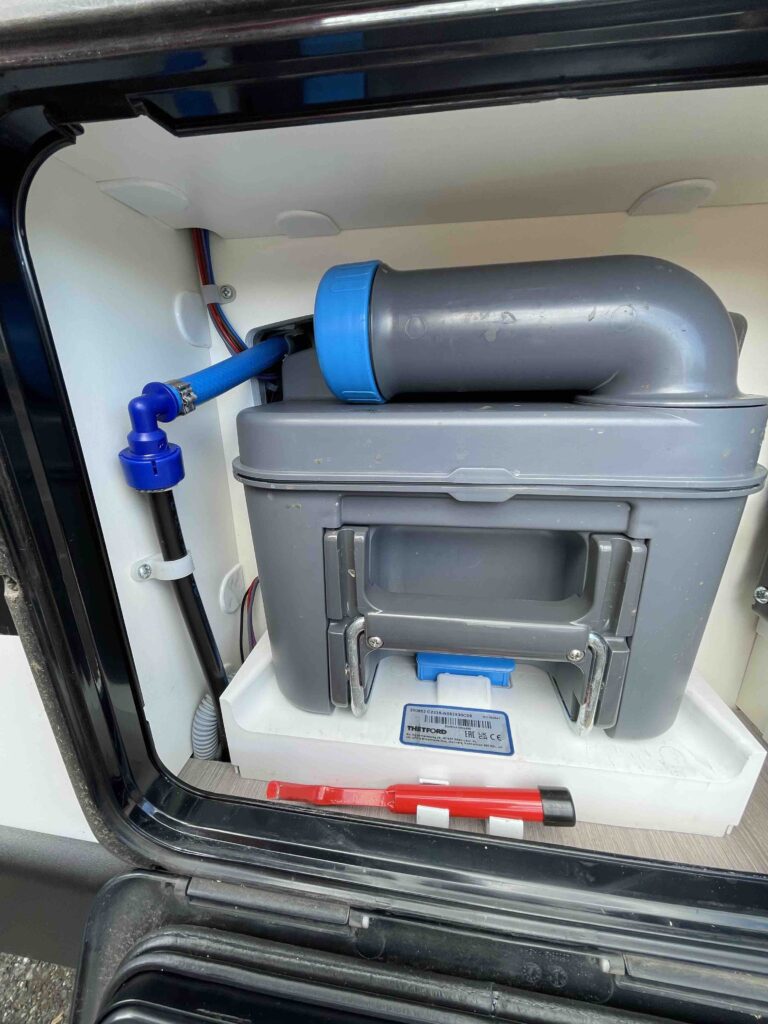
Troubleshooting Common Issues
When it comes to troubleshooting common issues with technology, there are a few key steps that can help resolve the problem quickly and efficiently. The first step is to identify the issue by carefully observing any error messages or unusual behaviour. Once the issue is identified, it is important to research possible solutions by checking online forums or contacting technical support. In some cases, a simple restart of the device or application may resolve the problem. If the issue persists, more advanced troubleshooting techniques may be necessary, such as updating software or drivers, performing a factory reset, or seeking professional assistance. By following these steps and being patient and thorough in the troubleshooting process, most common issues can be effectively resolved.
Dealing with Clogs and Blockages
Clogs and blockages are common household problems that can disrupt the flow of water in sinks, toilets, and drains. When faced with a clog, it’s important to act quickly to prevent further damage and inconvenience. One way to deal with clogs is to use a plunger to try and dislodge the blockage. If that doesn’t work, a drain snake or auger can be used to break up the clog. For more stubborn blockages, a chemical drain cleaner can be effective, but should be used with caution and only as a last resort. Prevention is key when it comes to avoiding clogs and blockages in the future. Regular maintenance, like using a hair catcher in the shower and avoiding putting grease down the drain, can help keep your pipes clear and flowing smoothly.
Addressing Odor Problems
When dealing with odor problems, it is important to first identify the source of the smell. Whether it is coming from a pet, a spill, or a specific area in your home, pinpointing the cause will help you determine the best course of action.
Once you have identified the source, you can begin to address the odor problem by thoroughly cleaning and disinfecting the area. Use cleaning products specifically designed to eliminate odors, and make sure to ventilate the space to help dissipate any lingering smells.
If the smell persists despite your efforts, consider using odor neutralisers or air purifiers to help combat the problem. Additionally, regularly maintaining a clean home and addressing any spills or pet accidents promptly can help prevent future odor issues.
Fixing Leaks in the Cassette System
One common issue with cassette systems is leaks, which can lead to a loss of efficiency and potential damage to surrounding components. To address leaks in the cassette system, start by identifying the source of the leak. This could be due to a damaged gasket, cracked casing, or loose connections. Once the source is identified, repair or replace the faulty component to stop the leak. Make sure to use the correct tools and materials to ensure a proper seal. After making the necessary repairs, test the system thoroughly to ensure that the leak has been successfully fixed. Regular maintenance and inspection can help prevent future leaks and keep your cassette system running smoothly.
Upgrading Your Caravan Toilet Cassette
When it comes to enhancing the functionality and comfort of your caravan, upgrading your toilet cassette can make a big difference. A new and improved toilet cassette can provide better sealing, odor control, and ease of use. This upgrade can also offer larger capacity, allowing for longer trips without the need to empty the cassette frequently. With advancements in design and technology, modern toilet cassettes are more user-friendly and efficient than ever before. Investing in a high-quality toilet cassette can greatly enhance your overall camping experience and make your journeys more enjoyable.
Additionally, upgrading your caravan toilet cassette can increase the value of your vehicle and make it more appealing to potential buyers if you ever decide to sell. It is a simple yet effective way to improve the functionality and convenience of your caravan’s bathroom facilities. So, consider upgrading your toilet cassette today and enjoy a more comfortable and hassle-free camping experience.
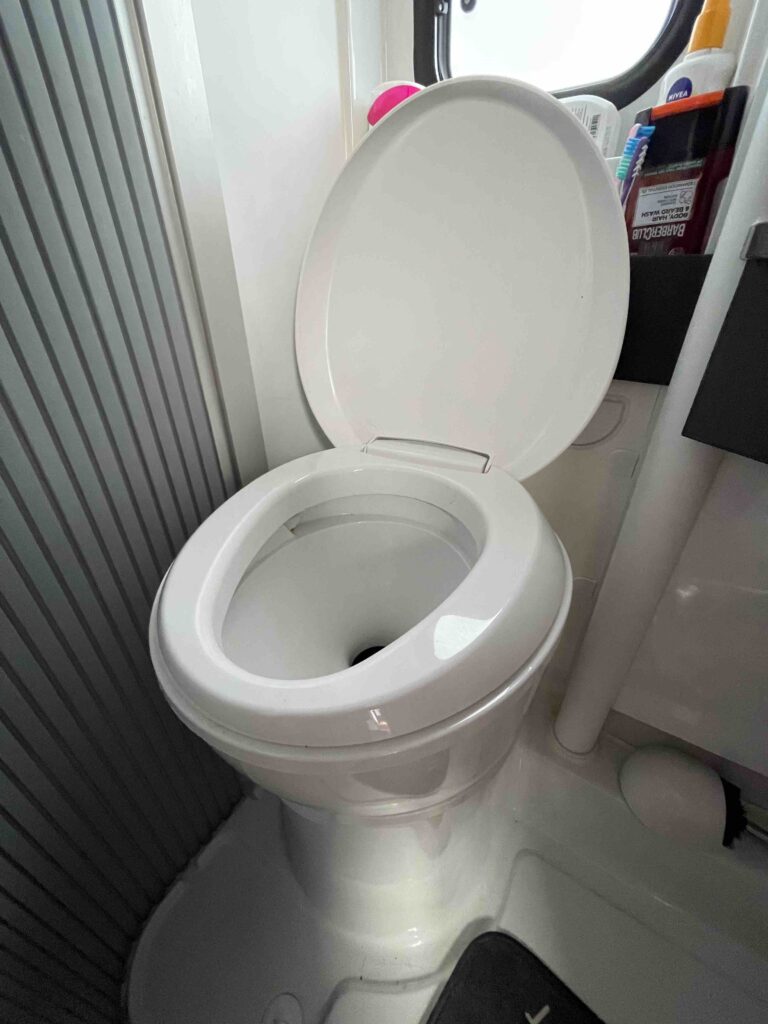
Exploring Swivel Toilet Seat Options
When it comes to exploring swivel toilet seat options, there are a few key factors to consider. The first is the material of the seat itself – whether you prefer a plastic, wood, or porcelain seat. Next, think about the swivel function – do you want a full 360-degree swivel or just a partial swivel? Additionally, consider the size and shape of the seat to ensure it fits your toilet properly. Finally, think about any additional features you may want, such as a soft-close mechanism or built-in deodoriser.
Benefits of Removable Waste-Holding Tanks:
These holding tanks offer numerous benefits for RV owners. Firstly, they provide a convenient and sanitary way to dispose of waste while on the road. Instead of having to search for a dump station, RV owners can simply remove the tank and empty it at a designated site. This helps to keep the living quarters clean and odor-free. Additionally, removable waste-holding tanks are easy to clean and maintain, ensuring that they remain in good working condition for years to come. Lastly, these tanks are usually made of durable materials that can withstand the rigours of travel, making them a reliable and long-lasting investment for RV owners.
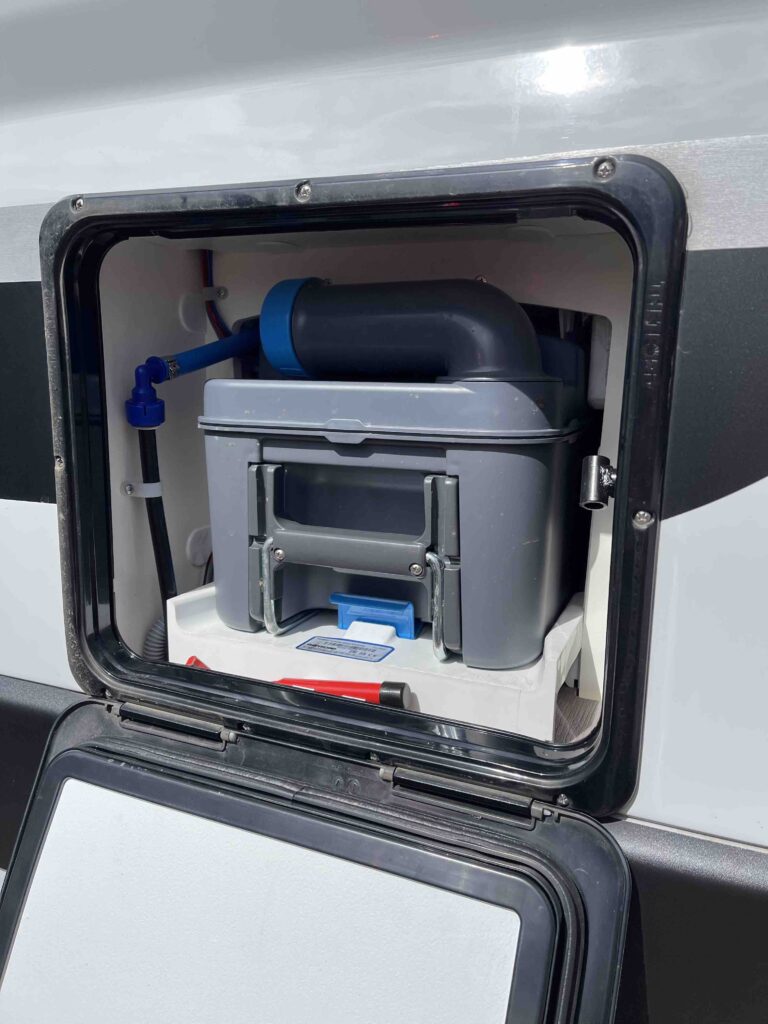
FAQ’s
Q: What is a caravan toilet cassette?
A: A caravan toilet cassette is a portable toilet system installed in caravans, motorhomes, and campervans for waste disposal.
Q: How does a caravan toilet cassette work?
A: A caravan toilet cassette consists of two main parts: the toilet bowl and the waste holding tank. Waste is deposited in the toilet bowl, which is then emptied into the waste holding tank. The waste holding tank can be removed and emptied at a designated disposal point.
Q: What is a Thetford toilet?
A: A Thetford toilet is a popular brand of portable toilets commonly used in caravans, motorhomes, and campervans. They are known for their durability and ease of use.
Q: How do you service a Thetford toilet cassette?
A: To service a Thetford toilet cassette, you need to regularly empty and clean the waste holding tank, replenish toilet fluid, and inspect for any leaks or damages.
Q: What is the difference between the Thetford C2 and C3 cassette toilets?
A: The Thetford C2 and C3 are different models of Thetford cassette toilets, with varying features and capacities. The C3 usually has a larger waste holding tank compared to the C2.
Q: What type of toilet fluid should I use for my caravan cassette toilet?
A: It is recommended to use specially formulated toilet fluid designed for caravan cassette toilets to ensure proper waste breakdown and odor control.
Q: What is a waste holding tank in a caravan toilet cassette?
A: The waste holding tank in a caravan toilet cassette is where all waste and toilet fluid are stored before being emptied at a disposal point.
Q: How do you maintain a caravan toilet cassette for optimal performance?
A: To maintain a caravan toilet cassette, regularly clean the toilet bowl and waste holding tank, use the recommended toilet fluid, and check for any leaks or damages.
Conclusion
We hope you liked this informative article on the Thetford cassette toilet by all means check out the links and the video for more information
